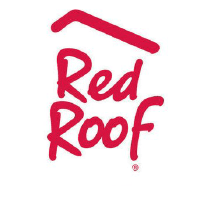
Hotel Indigo
How much does Hotel Indigo cost?
Initial Investment Range
$10,200,176 to $46,917,003
Franchise Fee
$135,000 to $488,000
The licensee will establish and operate a hotel under the Hotel Indigo brand.
Enjoy our partial free risk analysis below
Unlock the full risk analysis to access 9 more categories covering 100+ risks.
Hotel Indigo April 15, 2025 FDD Risk Analysis
Free FDD Library AI Analysis Date: July 16, 2025
DISCLAIMER: Not Legal Advice - For Informational Purposes Only. Consult With Qualified Franchise Professionals.
Franchisor Stability Risks
Start HereDisclosure of Franchisor's Financial Instability
Low Risk
Explanation
This risk was not identified. The financial statements for the franchisor, Holiday Hospitality Franchising, LLC (Holiday), and its parent guarantor, Six Continents Hotels, Inc., are audited by a major accounting firm and included in the FDD. Both entities show significant positive net worth and profitability, indicating financial stability and the capacity to support the franchise system. A financially strong franchisor is better positioned to provide ongoing support, marketing, and system development.
Potential Mitigations
- An accountant should still review the financial statements, including footnotes and the auditor’s report, to confirm the financial health and dependency on franchise fees versus royalties.
- Discuss the franchisor's financial strategy and plans for future investment in the brand with your business advisor.
- Legal counsel can help you understand the terms of any financial guarantees provided by the parent company.
High Franchisee Turnover
Low Risk
Explanation
This risk was not identified. The data in Item 20's tables for the last three years does not indicate a high rate of franchisee turnover. In 2023, there were four terminations out of 71 hotels, a rate of approximately 5.6%, which is not considered excessively high. In 2024, there were no terminations reported. A low turnover rate can suggest a stable system with generally satisfied franchisees and a viable business model.
Potential Mitigations
- As a best practice, speaking with a number of current and former franchisees from the lists in Item 20 is recommended to understand their experiences and reasons for staying or leaving.
- Your accountant can help you analyze the turnover data presented over the three-year period to confirm the stability of the system.
- Asking your attorney to review the conditions for termination and non-renewal in Item 17 can provide context for the turnover data.
Rapid System Growth
Low Risk
Explanation
This risk was not identified. The data in Item 20 shows that the number of Hotel Indigo units has been relatively stable over the past few years, with a net change of -3 units in 2023 and +2 units in 2024. This does not indicate rapid expansion that might strain the franchisor's resources. A stable growth rate suggests the franchisor can adequately support its existing and new franchisees.
Potential Mitigations
- It is still wise to discuss the franchisor's future growth plans and how they intend to scale support services with a business advisor.
- Engaging with current franchisees can provide insight into the current quality and responsiveness of the franchisor's support system.
- A review of the franchisor's financials in Item 21 with your accountant can confirm they have the necessary resources to manage their current system size effectively.
New/Unproven Franchise System
Low Risk
Explanation
This risk was not identified. Hotel Indigo has been franchising since 2004 and is part of InterContinental Hotels Group (IHG), a large, experienced, and publicly-traded global hotel company. The franchisor and its management have extensive history in both the hotel industry and franchising. A proven system with experienced leadership generally reduces the risk of systemic failure and ensures that operational and support structures are well-established.
Potential Mitigations
- Your business advisor can help you research the history and reputation of the franchisor and its parent company within the hospitality industry.
- Reviewing the executive team's backgrounds in Item 2 can confirm their extensive experience and tenure.
- A discussion with long-term franchisees can provide perspective on the system's evolution and the effectiveness of its management over time.
Possible Fad Business
Low Risk
Explanation
This risk was not identified. The Hotel Indigo brand operates in the boutique hotel segment of the hospitality industry. While tastes can change, the boutique concept has demonstrated long-term consumer demand and is a well-established market segment, not a short-term fad. The brand is also backed by IHG, a major global hotel company with a portfolio of diverse and long-standing brands, indicating a focus on long-term market viability.
Potential Mitigations
- A business advisor can help you analyze the long-term trends and competitive landscape of the boutique hotel market in your specific area.
- Questioning the franchisor about their strategy for brand evolution and adaptation to changing consumer preferences is still a prudent step.
- Your own market research should confirm sustained demand for this type of lodging experience in your chosen location.
Inexperienced Management
Low Risk
Explanation
This risk was not identified. Item 2 of the FDD lists the executive team for the franchisor and its parent companies. The listed individuals have extensive and long-tenured careers within the hospitality industry and specifically with InterContinental Hotels Group (IHG). Experienced management is more likely to provide effective support, make sound strategic decisions, and maintain a stable and successful franchise system, which is a significant benefit for franchisees.
Potential Mitigations
- It is always a good practice to conduct your own due diligence on the key executives listed in Item 2 with the help of a business advisor.
- During discussions with existing franchisees, inquire about their direct experiences with the management team's competence and support.
- Your attorney can confirm that the management structure disclosed aligns with the operational responsibilities outlined in the Franchise Agreement.
Private Equity Ownership
Low Risk
Explanation
This risk was not identified. The FDD's Item 1 discloses that the ultimate parent company is InterContinental Hotels Group PLC, a publicly traded company on the London and New York Stock Exchanges. The system is not owned by a private equity firm. This typically signals a focus on long-term brand health and operational performance rather than short-term financial engineering or a rapid exit strategy, which can be a positive for franchisee stability.
Potential Mitigations
- A business advisor can help you research the ownership structure and corporate governance of the parent company, IHG.
- A review of public filings for InterContinental Hotels Group PLC with your financial advisor can provide insight into its strategic priorities.
- Your attorney should review any assignment clauses in the Franchise Agreement to understand how a future change in ownership could impact your rights.
Non-Disclosure of Parent Company
Low Risk
Explanation
This risk was not identified. Item 1 of the FDD clearly discloses the parent companies, Six Continents Hotels, Inc. (SCH) and the ultimate parent, InterContinental Hotels Group PLC. Furthermore, the FDD includes audited financial statements for the parent guarantor, SCH, in Exhibit F-2. This level of transparency allows you and your advisors to assess the financial strength of the entities that back the franchisor's obligations, reducing the risk of hidden financial weaknesses.
Potential Mitigations
- Having your accountant review the provided parent company financial statements is crucial for a complete financial due diligence process.
- Your attorney should analyze the terms of any parent guaranty mentioned in Item 22 to understand the extent of the parent's commitment.
- Clarify with the franchisor the specific roles and responsibilities of the parent companies in supporting the franchise system.
Predecessor History Issues
Low Risk
Explanation
This risk was not identified. The franchisor's corporate history, including its formation and name changes from Holiday Inns Franchising, Inc., is disclosed in Item 1. There is no indication of undisclosed predecessors or attempts to obscure a negative history. Clear disclosure of a company's lineage allows for a more accurate assessment of its track record and the stability of the franchise system you are considering joining.
Potential Mitigations
- Your attorney can review the corporate history presented in Item 1 and cross-reference it with public records if any concerns arise.
- Discussions with long-tenured franchisees can provide anecdotal history about the brand and any predecessor companies.
- A business advisor can assist in researching the public reputation of the franchisor and its parent companies over time.
Pattern of Litigation
High Risk
Explanation
Holiday and its parent company, SCH, disclose a significant amount of litigation in Item 3. This includes a consolidated class action lawsuit brought by five franchisee groups alleging improper business practices, such as imposing unreasonable products and receiving kickbacks from suppliers. While the franchisor won a summary judgment motion, the franchisees have appealed. The presence of such systemic, franchisee-initiated litigation, especially a class action on appeal, represents a substantial risk of underlying issues within the system.
Potential Mitigations
- A thorough review of all litigation disclosed in Item 3 with your franchise attorney is essential to understand the nature and potential merit of the claims.
- Your attorney should research the current status of the key lawsuits, particularly the appeal of the class action dismissal.
- It is critical to discuss these litigation matters with current and former franchisees to get their perspective on the underlying issues.
Disclosure & Representation Risks
Example Risk: Franchisee Financial Obligations
Blue Risk
Explanation
This risk involves the financial obligations that a franchisee must meet, including initial fees, ongoing royalties, and other required payments. Understanding these obligations is crucial for long-term success.
Potential Mitigations
- Carefully review the Franchise Disclosure Document (FDD) and consult with a franchise attorney to fully understand all financial commitments before signing.
- Conduct regular risk assessments
- Implement monitoring and reporting systems
Unlock Full Risk Analysis
Purchase the complete risk review to see all 102 risks across all 10 categories.
Financial & Fee Risks
Example Risk: Franchisee Financial Obligations
Blue Risk
Explanation
This risk involves the financial obligations that a franchisee must meet, including initial fees, ongoing royalties, and other required payments. Understanding these obligations is crucial for long-term success.
Potential Mitigations
- Carefully review the Franchise Disclosure Document (FDD) and consult with a franchise attorney to fully understand all financial commitments before signing.
- Conduct regular risk assessments
- Implement monitoring and reporting systems
Unlock Full Risk Analysis
Purchase the complete risk review to see all 102 risks across all 10 categories.
Legal & Contract Risks
Example Risk: Franchisee Financial Obligations
Blue Risk
Explanation
This risk involves the financial obligations that a franchisee must meet, including initial fees, ongoing royalties, and other required payments. Understanding these obligations is crucial for long-term success.
Potential Mitigations
- Carefully review the Franchise Disclosure Document (FDD) and consult with a franchise attorney to fully understand all financial commitments before signing.
- Conduct regular risk assessments
- Implement monitoring and reporting systems
Unlock Full Risk Analysis
Purchase the complete risk review to see all 102 risks across all 10 categories.
Territory & Competition Risks
Example Risk: Franchisee Financial Obligations
Blue Risk
Explanation
This risk involves the financial obligations that a franchisee must meet, including initial fees, ongoing royalties, and other required payments. Understanding these obligations is crucial for long-term success.
Potential Mitigations
- Carefully review the Franchise Disclosure Document (FDD) and consult with a franchise attorney to fully understand all financial commitments before signing.
- Conduct regular risk assessments
- Implement monitoring and reporting systems
Unlock Full Risk Analysis
Purchase the complete risk review to see all 102 risks across all 10 categories.
Regulatory & Compliance Risks
Example Risk: Franchisee Financial Obligations
Blue Risk
Explanation
This risk involves the financial obligations that a franchisee must meet, including initial fees, ongoing royalties, and other required payments. Understanding these obligations is crucial for long-term success.
Potential Mitigations
- Carefully review the Franchise Disclosure Document (FDD) and consult with a franchise attorney to fully understand all financial commitments before signing.
- Conduct regular risk assessments
- Implement monitoring and reporting systems
Unlock Full Risk Analysis
Purchase the complete risk review to see all 102 risks across all 10 categories.
Franchisor Support Risks
Example Risk: Franchisee Financial Obligations
Blue Risk
Explanation
This risk involves the financial obligations that a franchisee must meet, including initial fees, ongoing royalties, and other required payments. Understanding these obligations is crucial for long-term success.
Potential Mitigations
- Carefully review the Franchise Disclosure Document (FDD) and consult with a franchise attorney to fully understand all financial commitments before signing.
- Conduct regular risk assessments
- Implement monitoring and reporting systems
Unlock Full Risk Analysis
Purchase the complete risk review to see all 102 risks across all 10 categories.
Operational Control Risks
Example Risk: Franchisee Financial Obligations
Blue Risk
Explanation
This risk involves the financial obligations that a franchisee must meet, including initial fees, ongoing royalties, and other required payments. Understanding these obligations is crucial for long-term success.
Potential Mitigations
- Carefully review the Franchise Disclosure Document (FDD) and consult with a franchise attorney to fully understand all financial commitments before signing.
- Conduct regular risk assessments
- Implement monitoring and reporting systems
Unlock Full Risk Analysis
Purchase the complete risk review to see all 102 risks across all 10 categories.
Term & Exit Risks
Example Risk: Franchisee Financial Obligations
Blue Risk
Explanation
This risk involves the financial obligations that a franchisee must meet, including initial fees, ongoing royalties, and other required payments. Understanding these obligations is crucial for long-term success.
Potential Mitigations
- Carefully review the Franchise Disclosure Document (FDD) and consult with a franchise attorney to fully understand all financial commitments before signing.
- Conduct regular risk assessments
- Implement monitoring and reporting systems
Unlock Full Risk Analysis
Purchase the complete risk review to see all 102 risks across all 10 categories.
Miscellaneous Risks
Example Risk: Franchisee Financial Obligations
Blue Risk
Explanation
This risk involves the financial obligations that a franchisee must meet, including initial fees, ongoing royalties, and other required payments. Understanding these obligations is crucial for long-term success.
Potential Mitigations
- Carefully review the Franchise Disclosure Document (FDD) and consult with a franchise attorney to fully understand all financial commitments before signing.
- Conduct regular risk assessments
- Implement monitoring and reporting systems
Unlock Full Risk Analysis
Purchase the complete risk review to see all 102 risks across all 10 categories.











